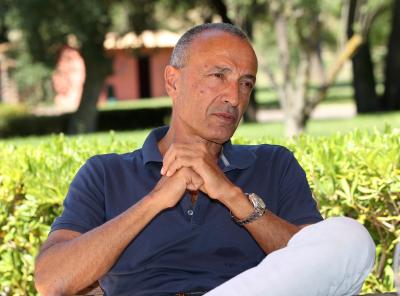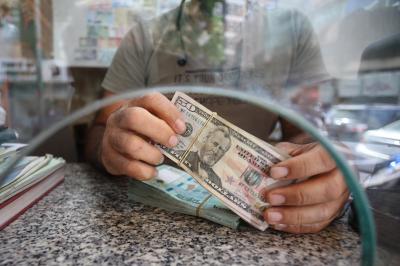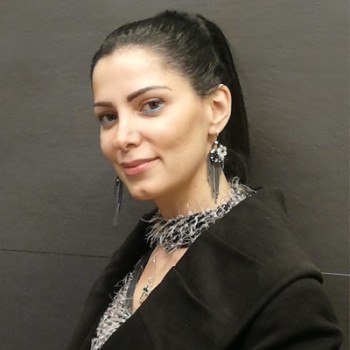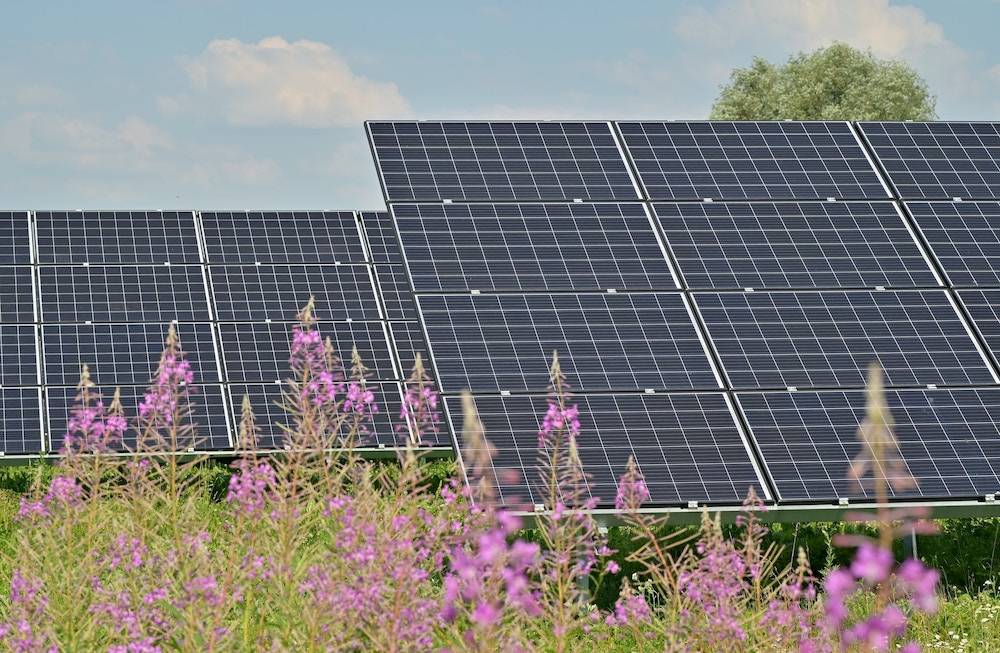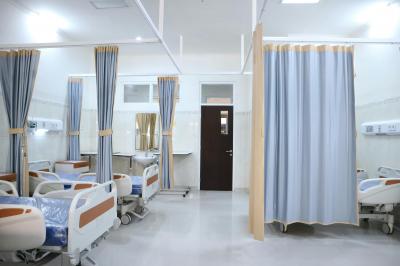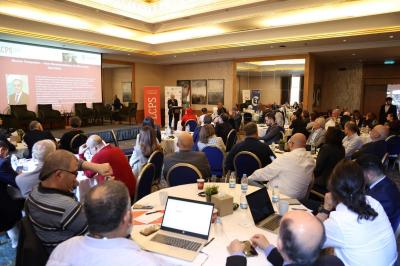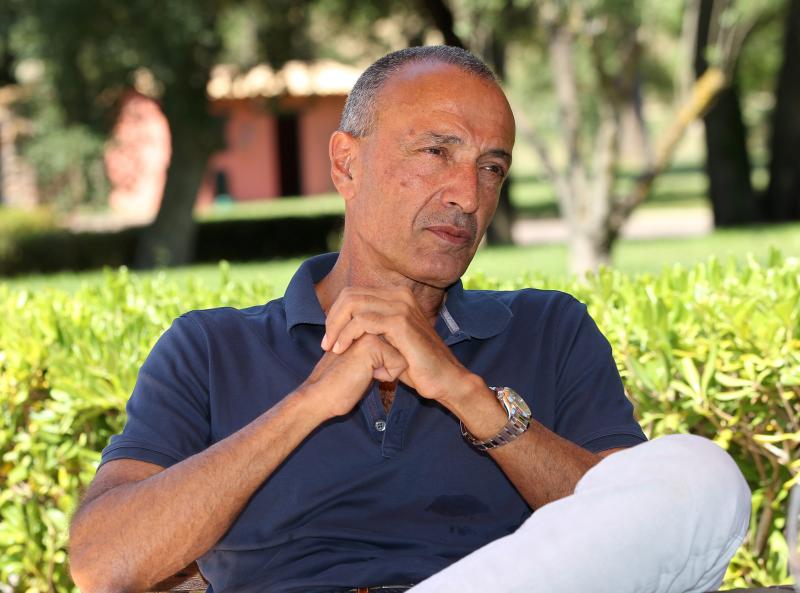The very first solar farm of its kind to emerge in Lebanon
At the heart of Nmairiyeh, a quaint little town in southern Lebanon, a revolutionary project is flourishing that never fails to amaze. Driven by the visionary agricultural company "ReGen", this innovative concept took shape in the Nabatiyeh district, some 65 km from the bustling capital of Beirut. It is the very first solar farm of its kind to emerge in Lebanon, marking a decisive step in the rise of renewable energies in the region.
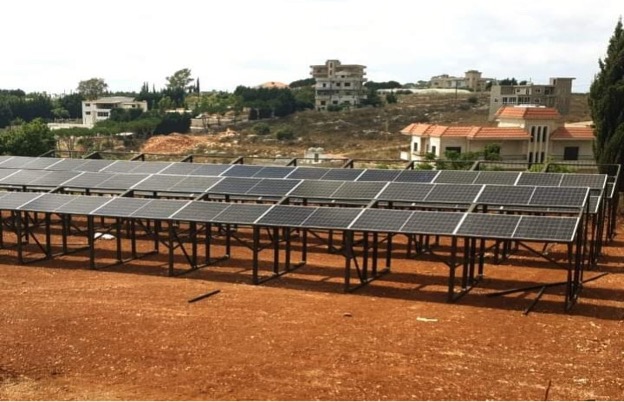
Sporting a remarkable reserve of over 600,000 plastic bags, the farm seems intriguing at first, raising questions about its motives and objectives. However, diving into the intricacies of this pioneering venture, a myriad of possibilities opens up to the mind. The bold marriage of design and innovation appears to be the credo of this trailblazing company, pushing boundaries and disregarding established conventions. A project that promises to redefine our perspective on sustainable agriculture and responsible use of recyclable materials.
Stay tuned to discover the fascinating story of this unique solar farm, a symbol of a future vision more respectful of our planet.
A world where imagination comes to life! Picture yourself comfortably seated on a plastic chair, crafted from recycled coffee cups and water bottles. Or even better, an eco-responsible solar panel installation, resting on an innovative base made from recycled supermarket bags. This audacious vision sparked our curiosity, prompting us to dig deeper. In an exclusive interview with "Al-Safa News," we met Ziad Abi Chaker, a pioneering engineer in the environmental and industrial fields, and the founder of "Cedar Environmental Group." He unveils the secrets of this revolutionary technology, implemented in his factory.
"It's a meticulous work that begins with the careful collection of various single-use plastic materials: nylon bags, plastic cups, water bottles, bread and chips packets, not to mention the packaging sheets of cheese and other products. Then, a series of cutting-edge processes come into play: grinding, melting, and concentrating the plastic, allowing the ingenious manufacture of ecological panels and profiles." A giant step towards a greener and more responsible future, where innovation blends perfectly with the preservation of our environment.
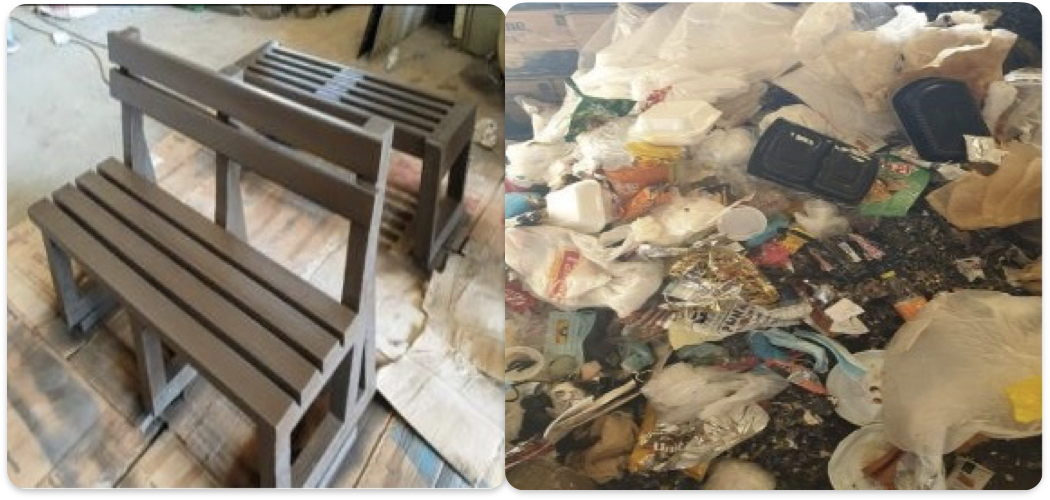 Turning single-use plastic into seats.
Turning single-use plastic into seats.
Ziad Abi Chaker has dared an audacious innovation in the world of vertical agriculture and the manufacturing of waste containers, as well as seats and solar panels. The idea germinated in his mind: why not replace the iron bases of solar energy systems with plastic bases? A legitimate question, especially at a time when Lebanon was facing a major plastic pollution crisis. Without hesitation, he put this innovative idea into practice by installing these plastic bases on the rooftops of houses and buildings. Thus was born the very first solar farm composed of 60 panels, powering an irrigation pump.
"We used plastic structures made from 3,960 kilograms of single-use plastic materials (equivalent to about 605,880 supermarket bags), molded into shapes of 6 cm x 6 cm x 290 cm. By assembling in units of six panels, we repeated this process ten consecutive times to bring to life a structure comprising 60 panels." To preserve the precious agricultural land beneath the solar panels, the ingenious minds behind this project, namely the agricultural company ReGen, envisioned a solution: a 70 cm opening between each panel, allowing the benefits of the sun's rays to filter through. An innovative initiative that opens new horizons for clean energy and recycling, while preserving the essential agricultural resources of our country.
 Ziad Abi Chaker
Ziad Abi Chaker
An innovative project, after three weeks of study and implementation, was launched last July in Lebanon. A first in the country, where a plastic base was installed for a solar energy system on loose soil. The major challenge lay in affixing the panels on unstable ground, quite different from concrete installations. A secondary challenge was to preserve the crops while ensuring perfect exposure to the sun's rays.
A successful gamble, but the benefits of this initiative don't stop there. Ziad Abi Chaker, the architect of this success, highlights the advantages of plastic over iron: "Plastic bars and panels have considerable advantages, especially their resistance to corrosion compared to iron, particularly when in contact with earth and water. Moreover, the durability of plastic far exceeds 50 years, while that of iron is limited to only 7 years. Additionally, plastic bases have proven their resistance to seismic tremors thanks to their flexibility, which is not the case with iron bases, which risk breaking during vibrations."
The advantages don't end there. The cost of plastic bases is about 30% lower than that of iron bases, resulting in a saving of 5 to 7 dollars per solar panel. This advancement attests to the countless benefits of plastic in terms of durability, reduced costs, and resilience, thus paving the way for new prospects in the solar energy industry in Lebanon. A true revolution that could change the game and encourage other green and sustainable initiatives in the country.
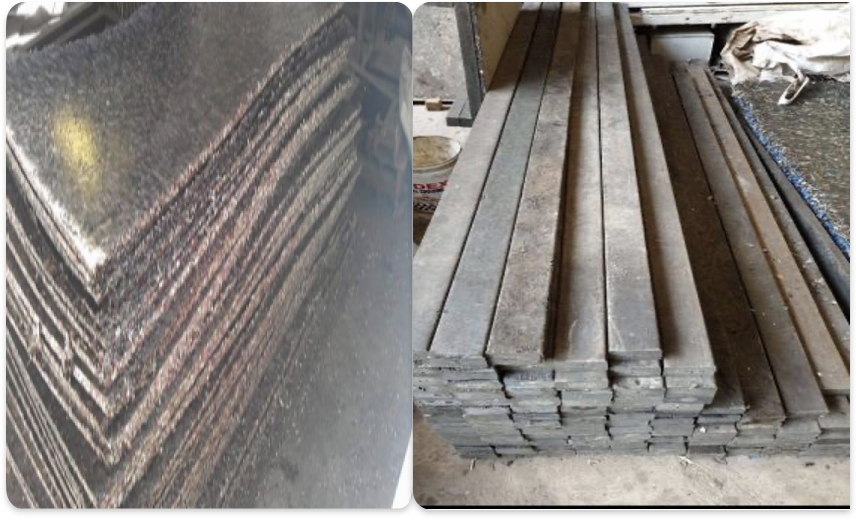 Plastic bars and panels.
Plastic bars and panels.
Nature Claims Its Share!
At the heart of this project, a major advantage lies in its environmental impact, as similar initiatives rid considerable quantities of plastic, an inescapable element of our daily lives despite growing concerns about pollution. "Each plastic base (for the installation of three solar panels) consists of 100 kilograms of plastic, which equates to about 15,300 supermarket bags," specifies Ziad Abi Chaker. An amount that leads one to reflect on the potential of this technology to eliminate plastic, especially since the factory has the capacity to process one and a half million bags every month, according to ongoing research.
But where do these quantities of single-use plastic materials come from? "We have a municipal waste treatment plant in Beit Mery, as well as collection points and containers in various areas like Sassin Square, Mar Mikhael, Zalka, Ain El Rihaneh, and others, where sorting begins at the source." Betting on the success of this technology to reduce environmental impact is crucial, especially in the face of ineffective measures to ban or reduce the use of plastic, in the absence of practical alternatives.
Valuing plastic through this innovative project opens a door of hope for the environment, demonstrating that it is possible to reconcile sustainability and technological advancement to meet the challenges of our time. The contribution of this initiative cannot be underestimated, as it helps to preserve our planet by valorizing plastic waste, a crucial step towards a cleaner and more respectful future for our ecosystem. An ecological awareness is on the horizon, opening new prospects for sustainable cohabitation between humans and nature.
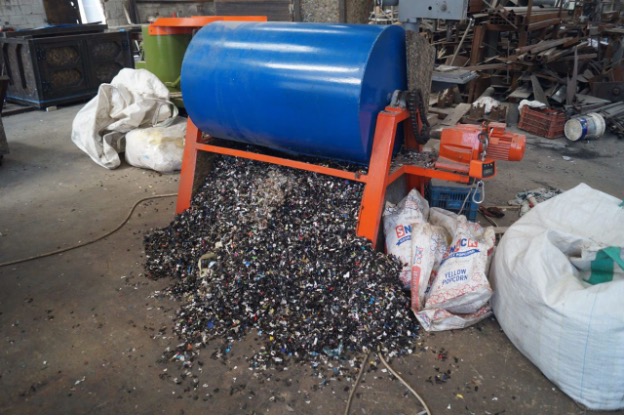
In Search of Funding to Stimulate Development
Faced with the resounding success of the project on the ground, a question emerges: why does the lack of coordination with official authorities prevent this individual initiative from becoming a national plan? Ziad Abi Chaker provides some answers, highlighting the financial constraints facing municipalities, ministries, and the public sector, hindering any collaboration for now. Without funding, the industry's growth remains impeded. Furthermore, the waste issue remains one of the most persistent dilemmas in terms of corruption, even an insolvable enigma, obstructing the emergence of organized policies and solutions for recycling in Lebanon.
In an unequivocal statement, he concludes: "We are devoid of a State, gasping our last breath. We are living in the final moments of the Second Republic, and the disputes over its burial and the advent of the Third Republic are apparent. The talents and creations of the Lebanese will only find fulfillment in a more enlightened Republic, governed in a way radically different from its predecessors." Nevertheless, Ziad Abi Chaker has brilliantly succeeded in giving invaluable value to bags once neglected by many, transforming them into innovative plastic creations. Our urgent need for similar models is therefore clear.
Please post your comments on:
[email protected]
 Politics
Politics
